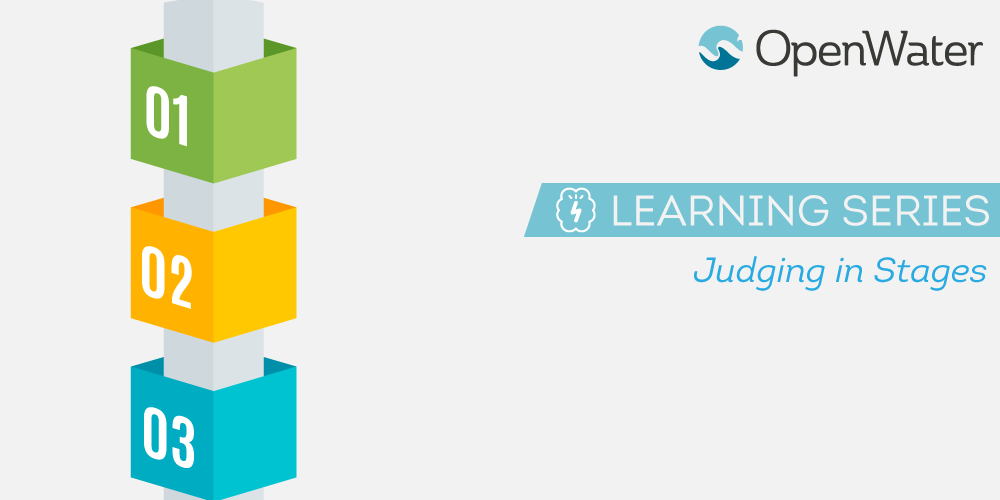
Learning Series: Judging in Stages
Judging begins as soon as the call for entry ends. And, while this is true of any awards program, your judging process won’t look quite like any other program’s execution. However, there are some similarities your program might share with others, such as judging in stages.
Most programs are judged in stages and there are as many stages as there are rounds. For more on how this works and what different stages may look like, read on!
Typical Judging in Stages
The submission phase has ended and it’s time to start judging. But few programs go straight from submissions to final judging. Instead, many have two rounds to first determine preliminary finalists and to then determine winners.
Doing so makes it simpler for judges to narrow down the field without having to choose a winner straight out of the gate. Most importantly, it makes the judging process more manageable.
How Other Processes Work With Judging in Stages
While judging in stages works for most programs, others incorporate a public vote element into the finalists and winners. So, where does this fit in if you’re to be judging in stages?
Typically, public opinion comes in after the preliminary round in the second, final judging round. Doing so allows judges to use their discerning judgment to choose candidates qualified to be in the public vote before taking the public’s opinion into account.
Incorporating a public element in your judging makes your audience feel as if they’re involved in the process and, most importantly, have a more vested interest in the program beyond just submitting an entry. You may even choose to offer a separate award for the entry that wins the public vote. It’s up to you to determine what works best for your program.
Will You Restructure or Rethink Your Judging?
Whether you judge in one round or have three or more rounds for your program, the key is figuring out what works best for your judges and entrants. By incorporating an element like public vote in your program you may switch up your judging and keep your program more interesting.
So, will you restructure or rethink your judging? That’s up to you to decide.
Want a companion worksheet to plan for success? Download it here.
